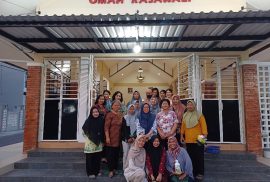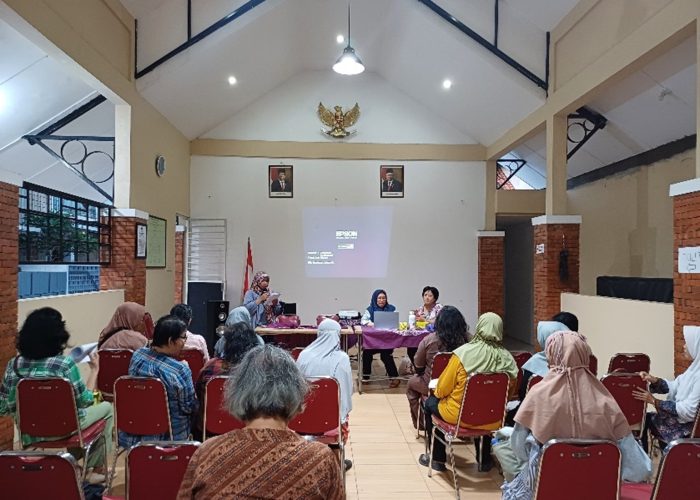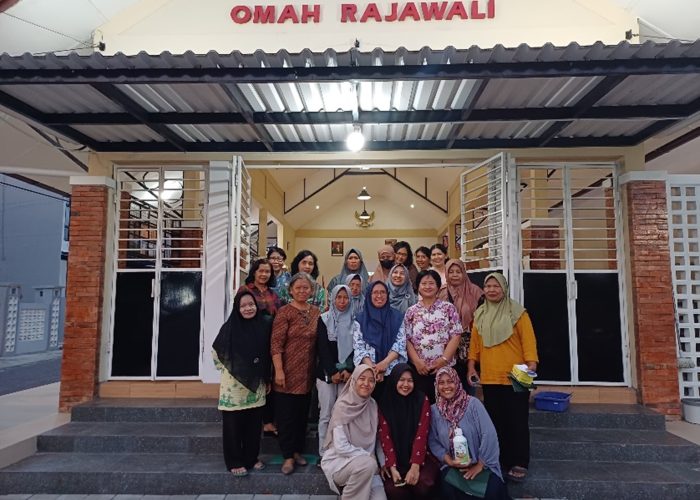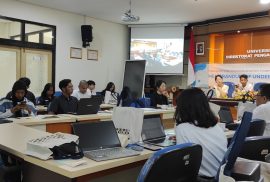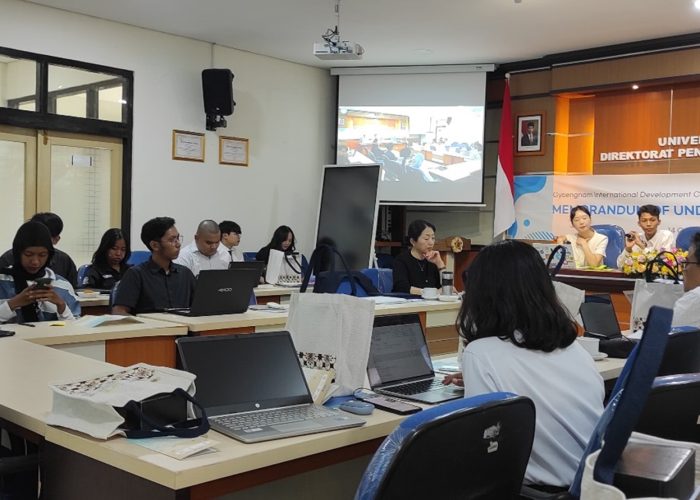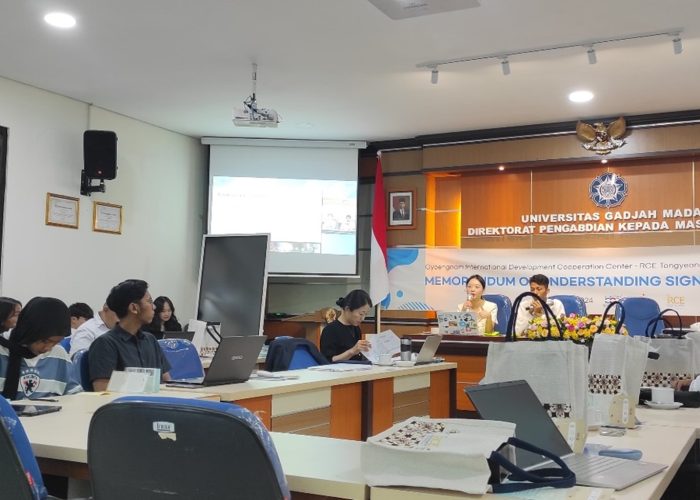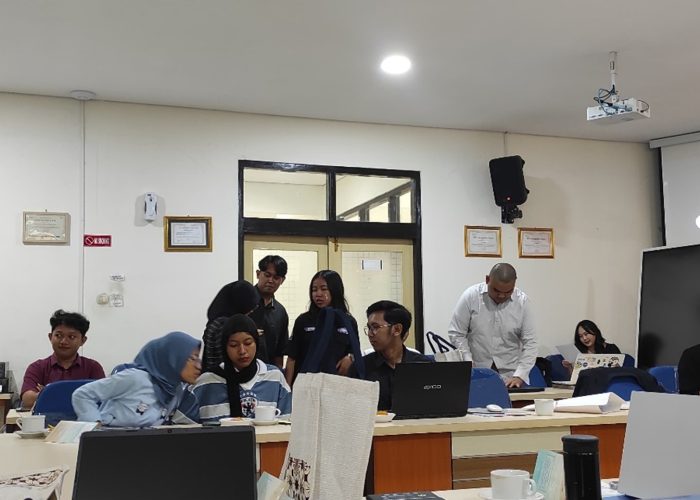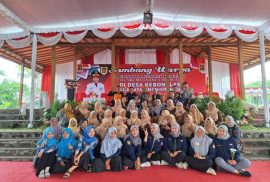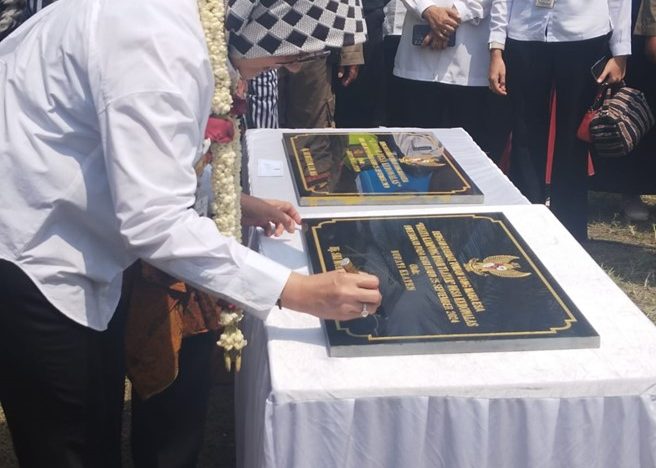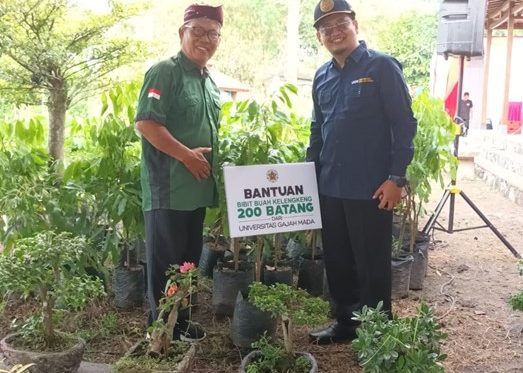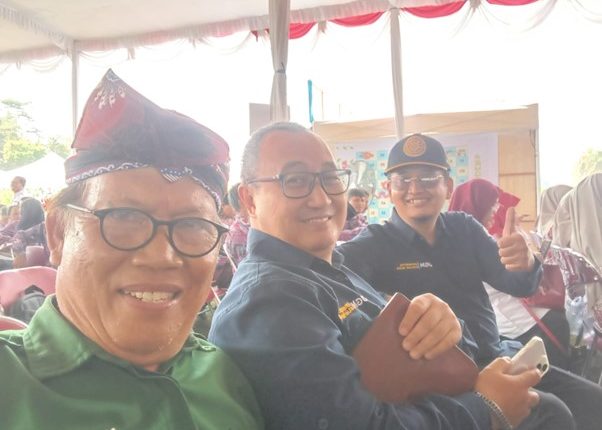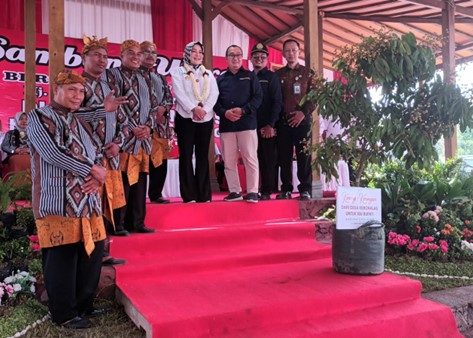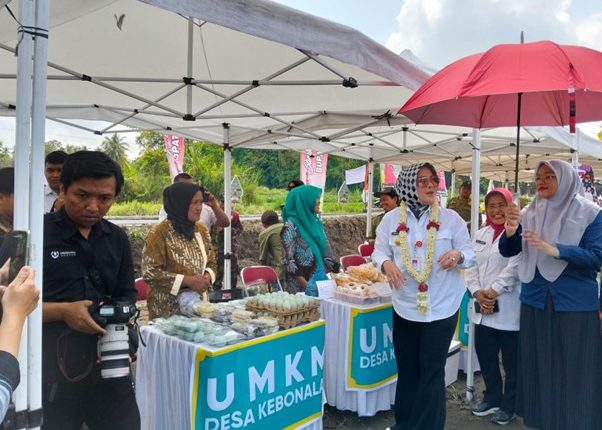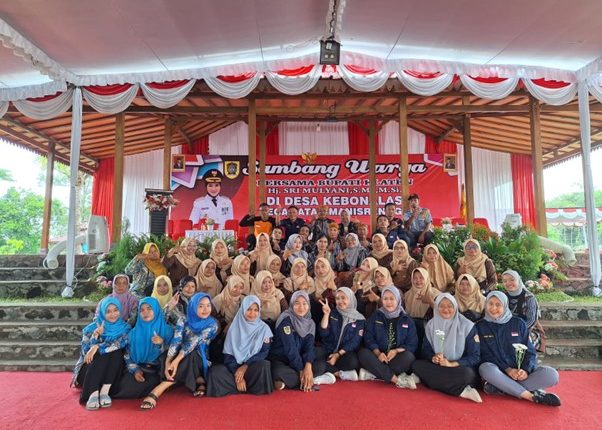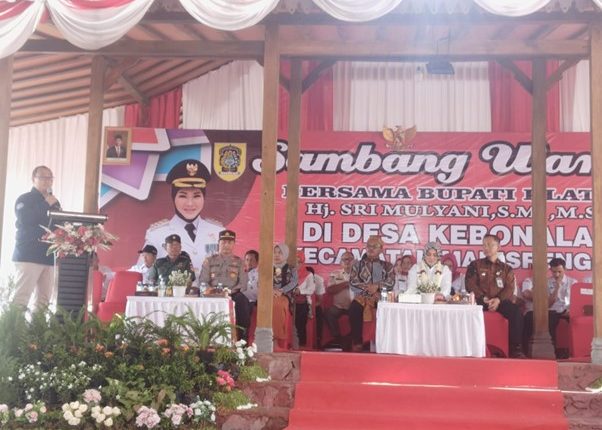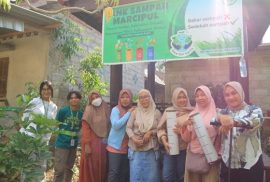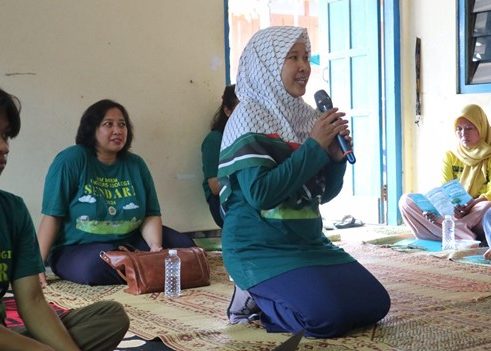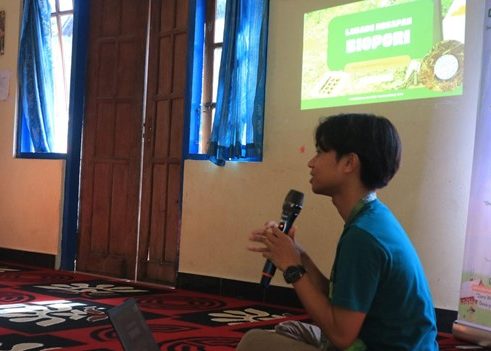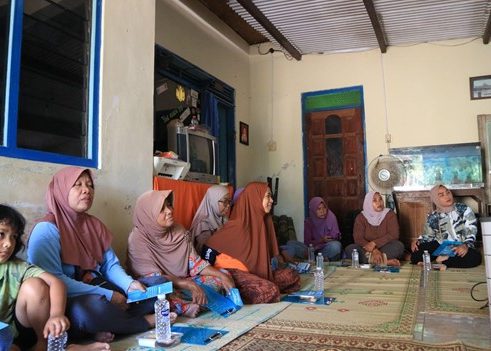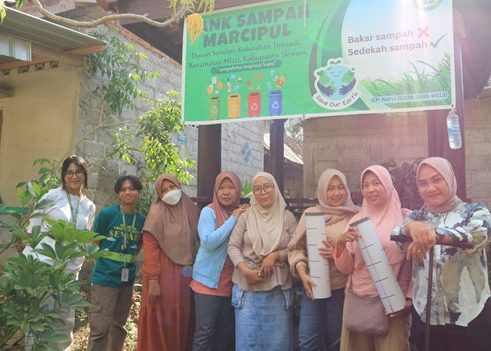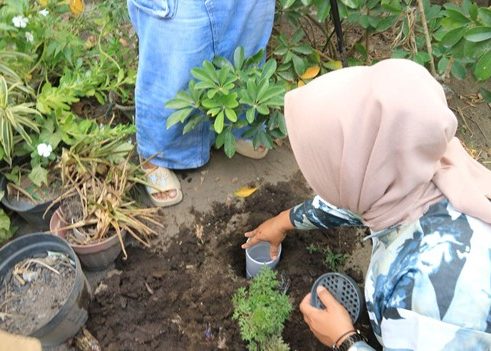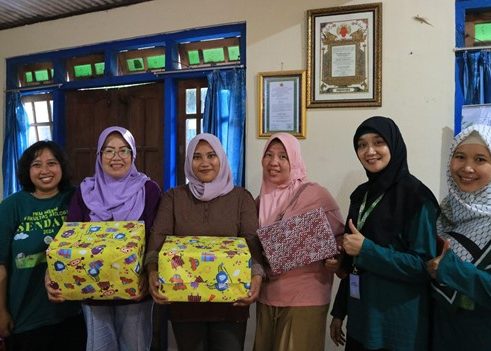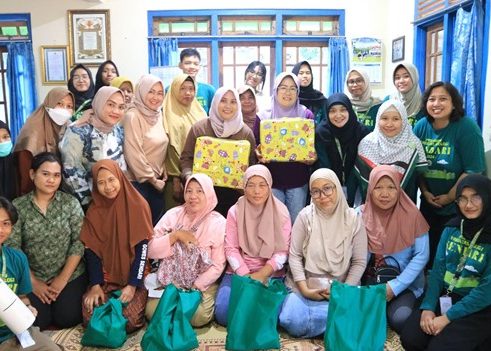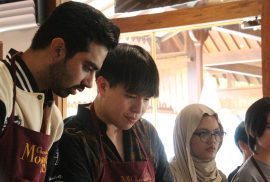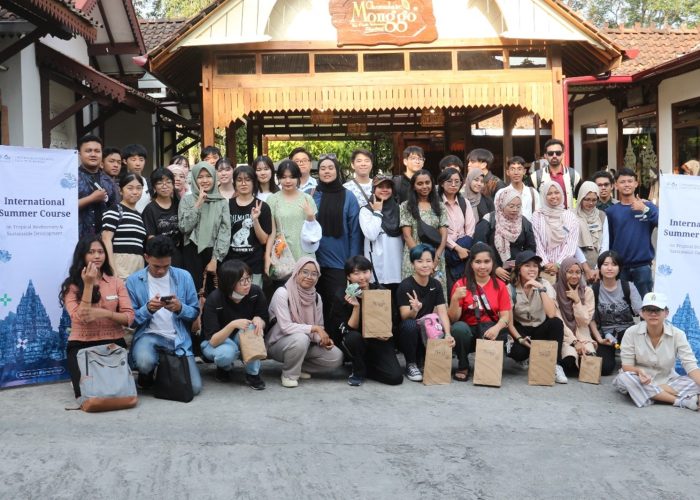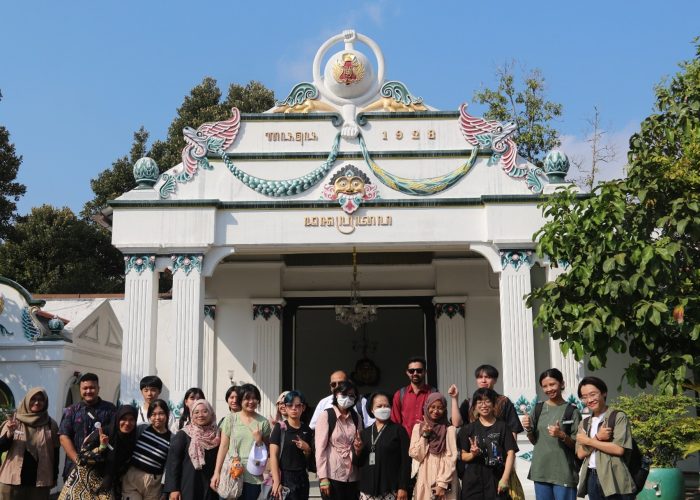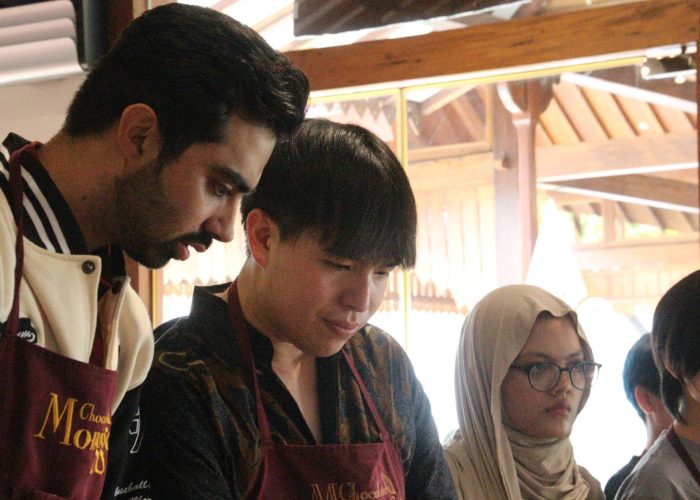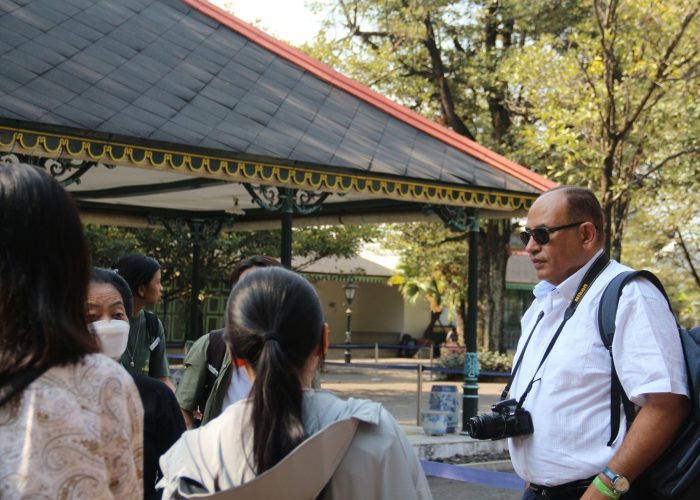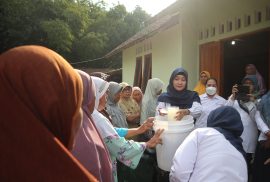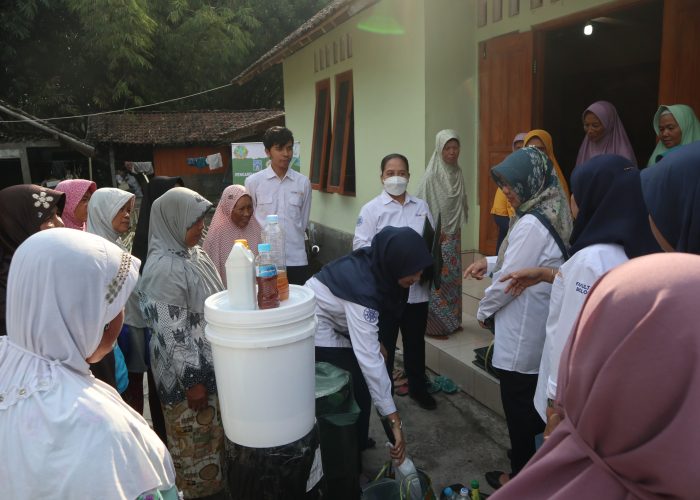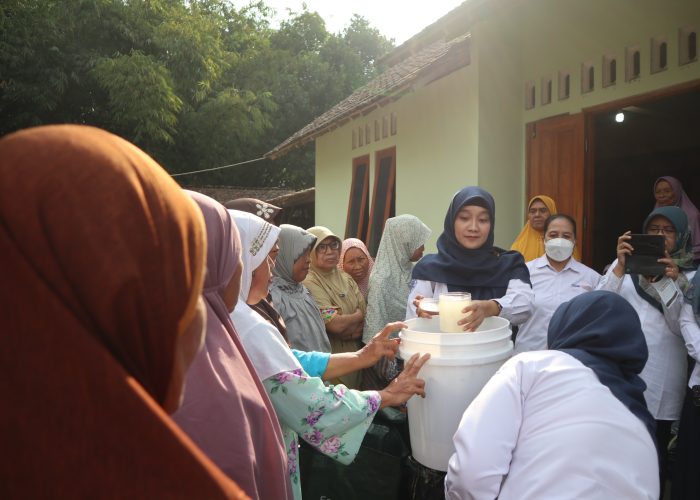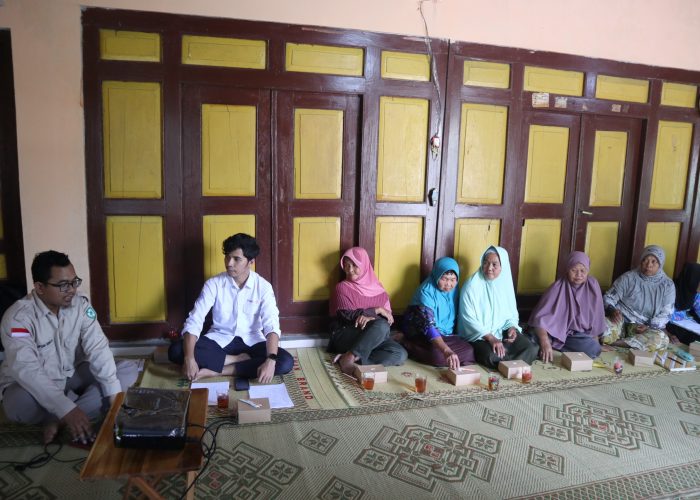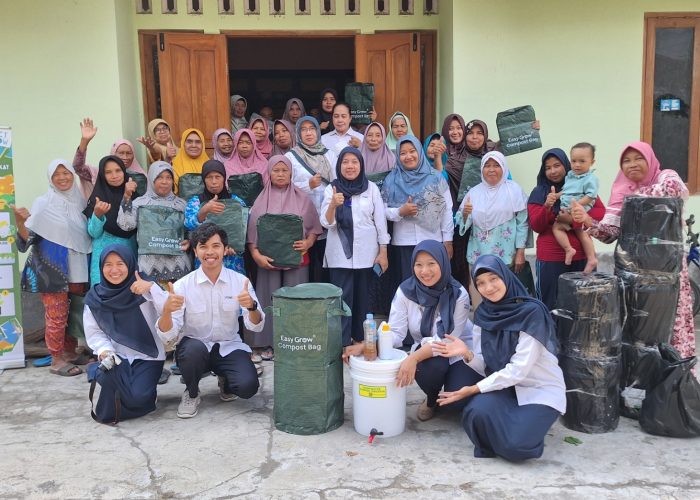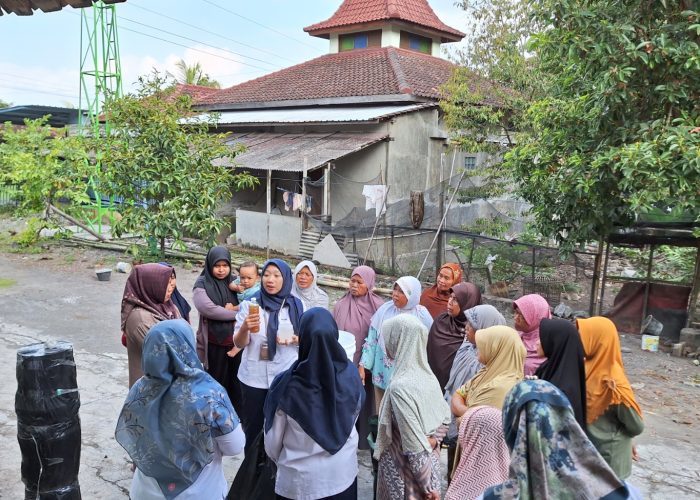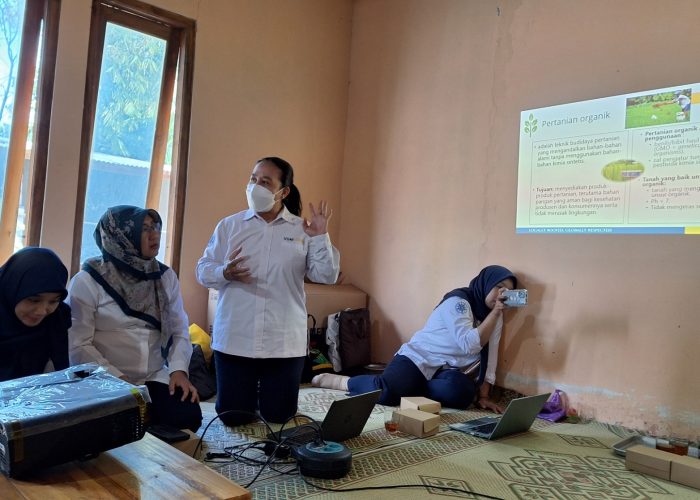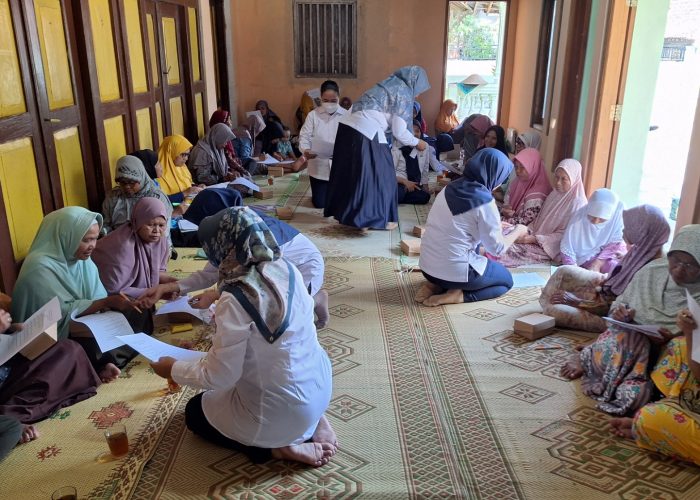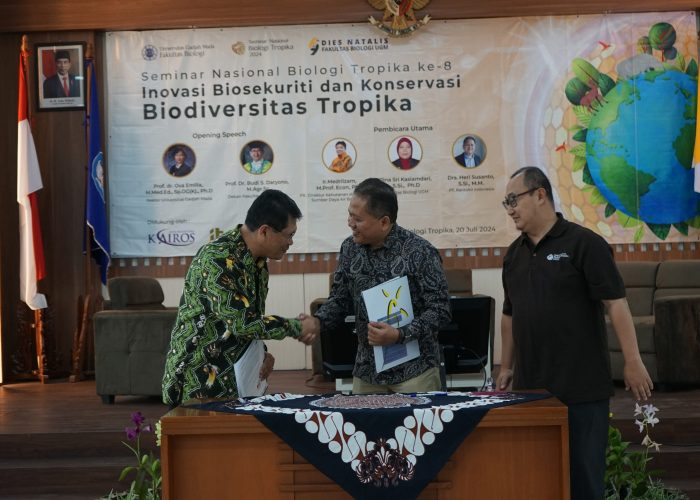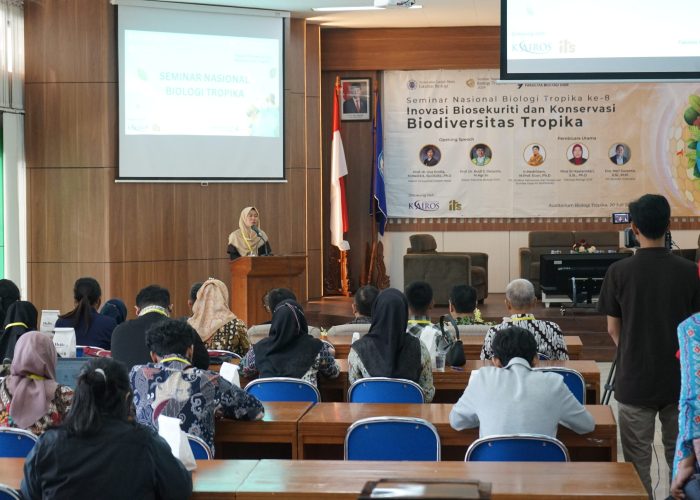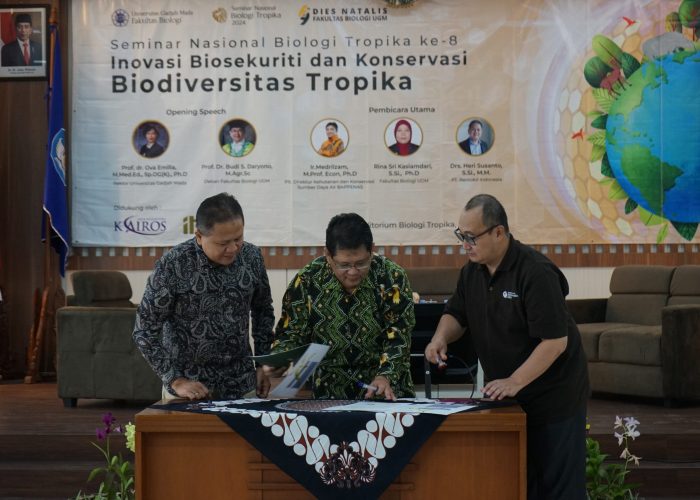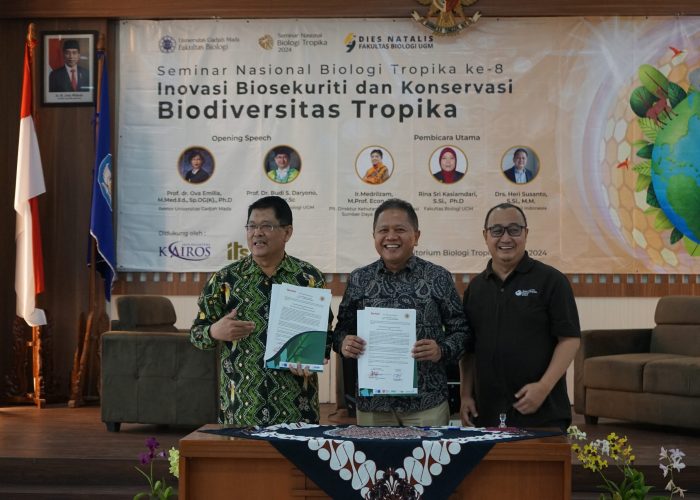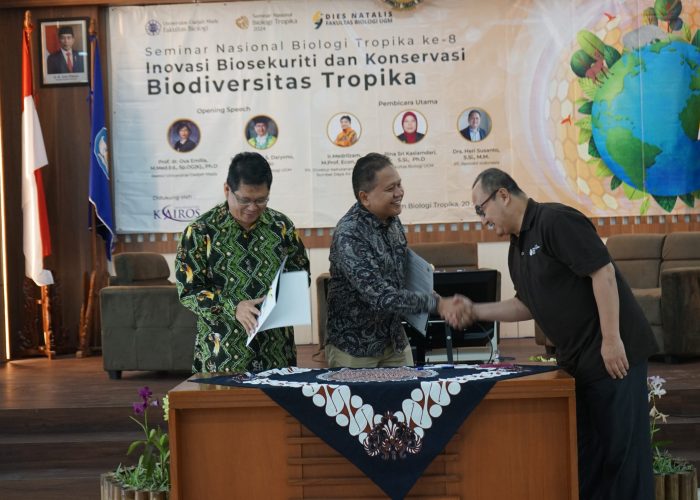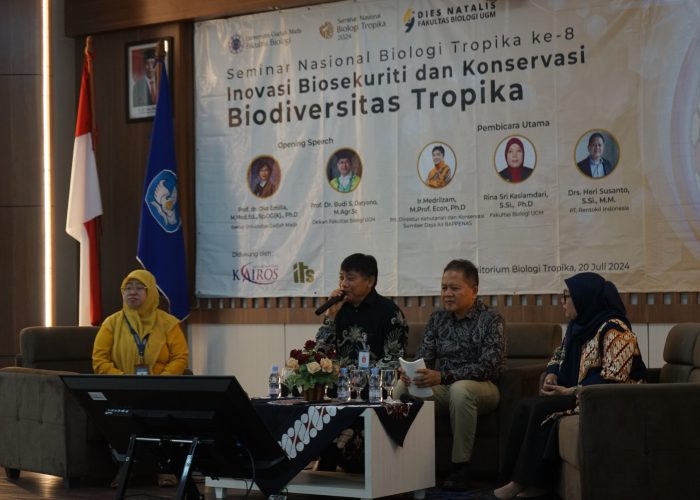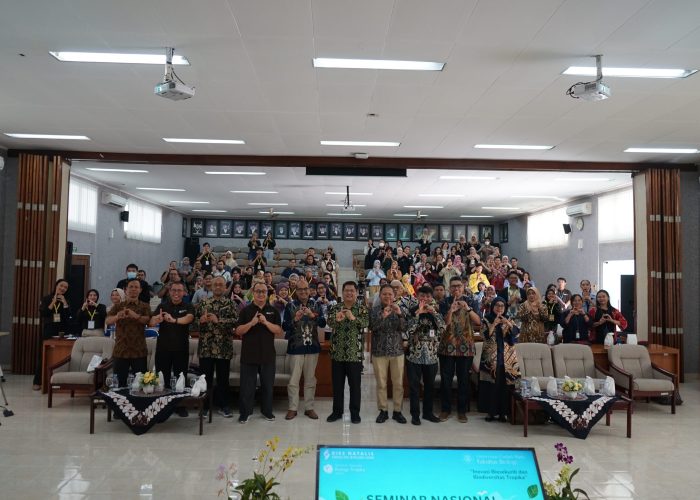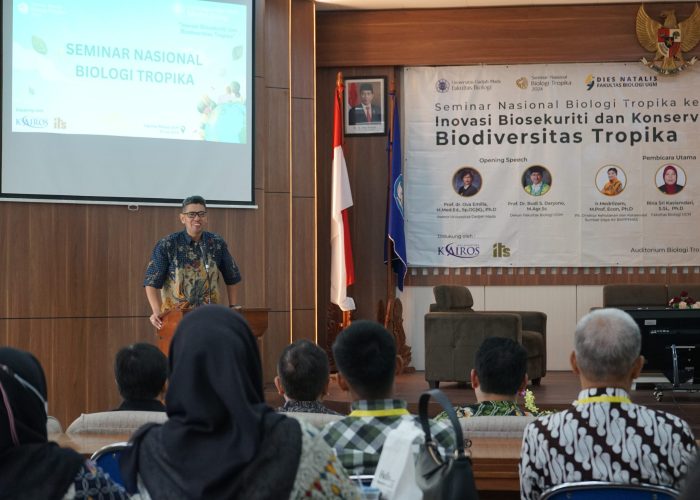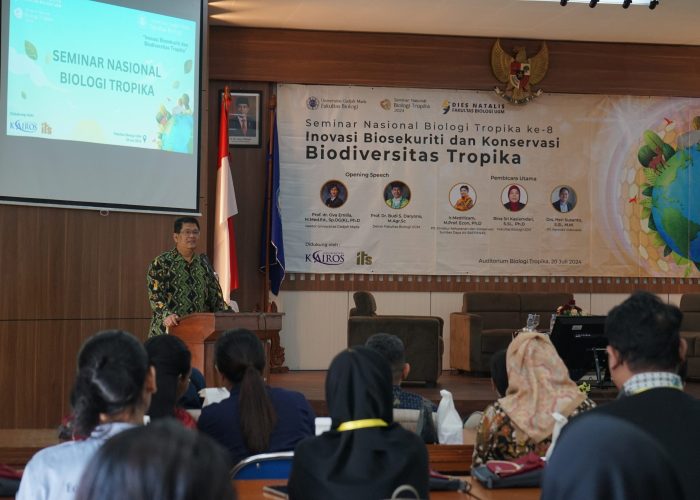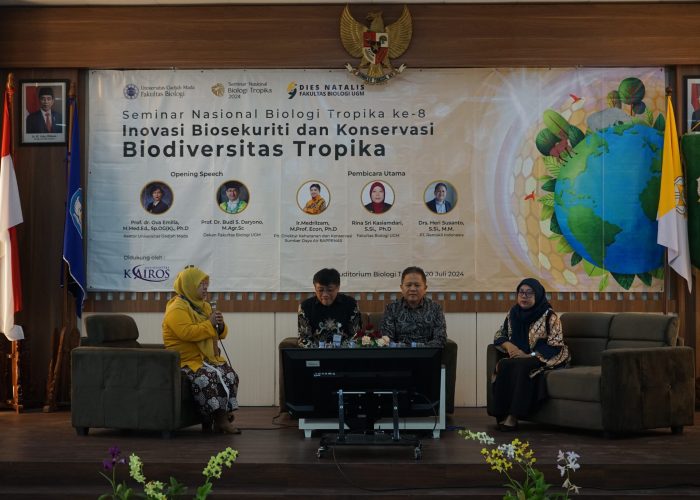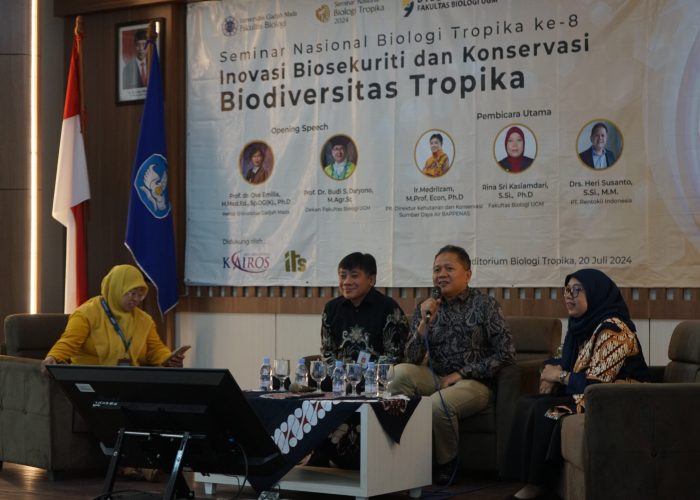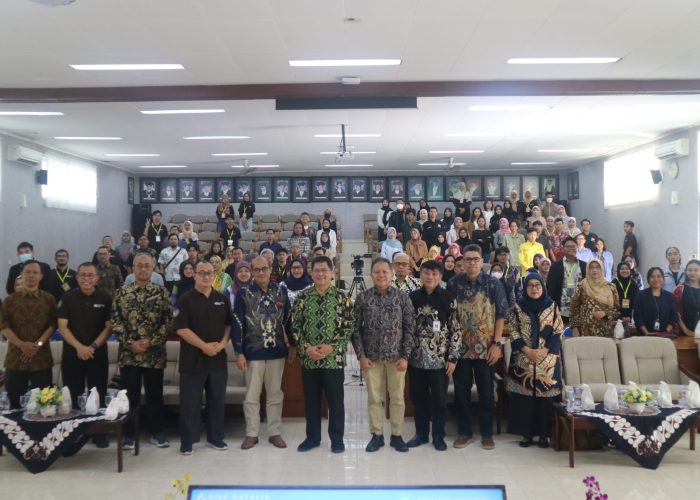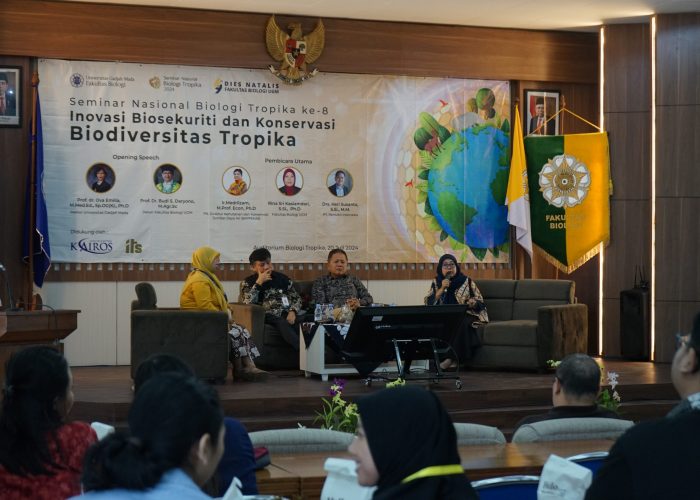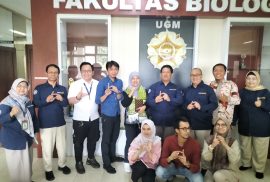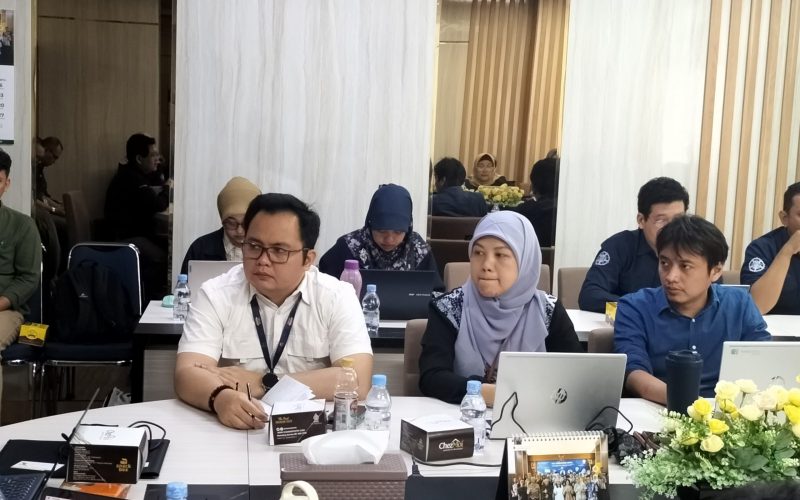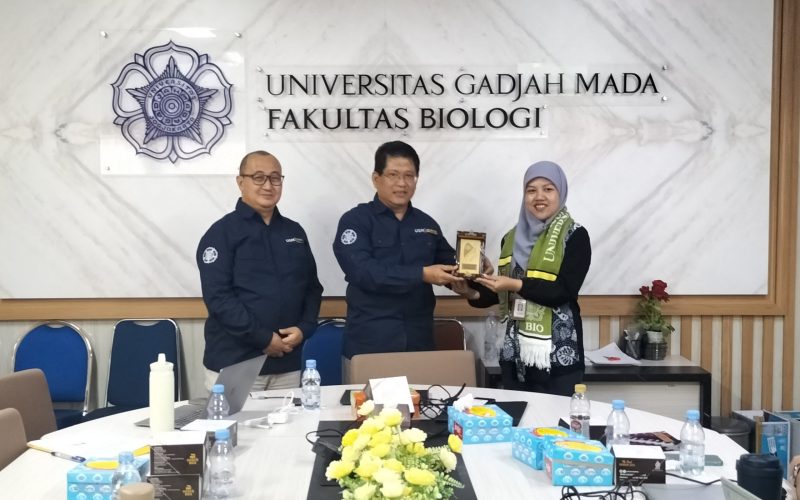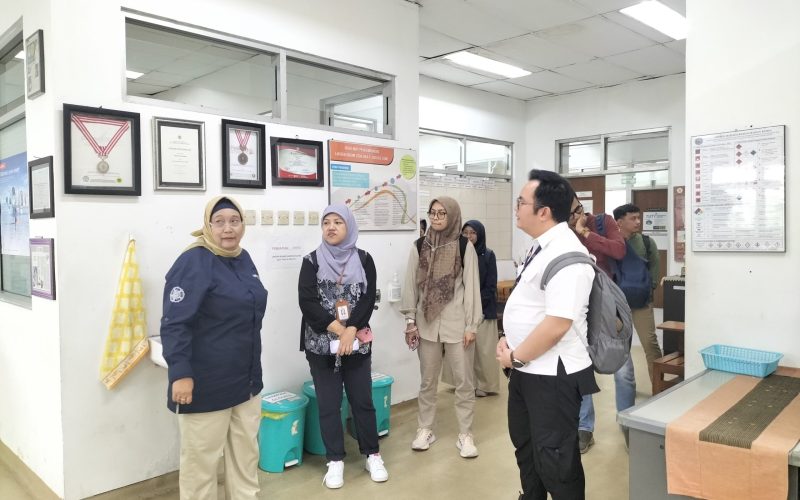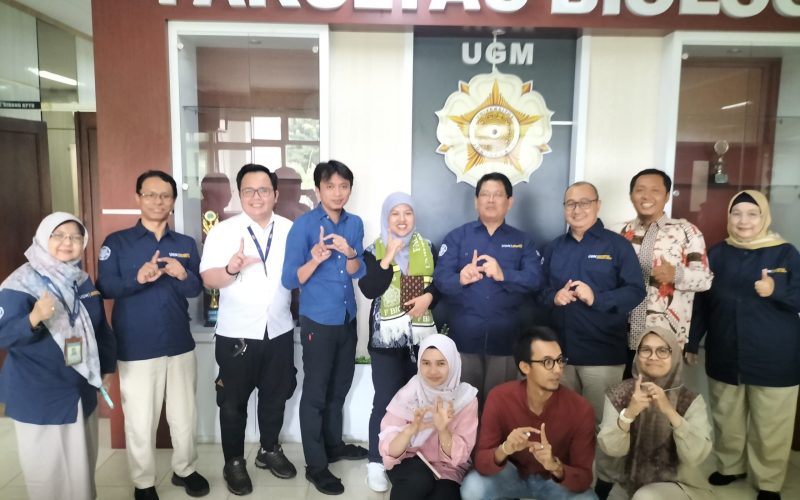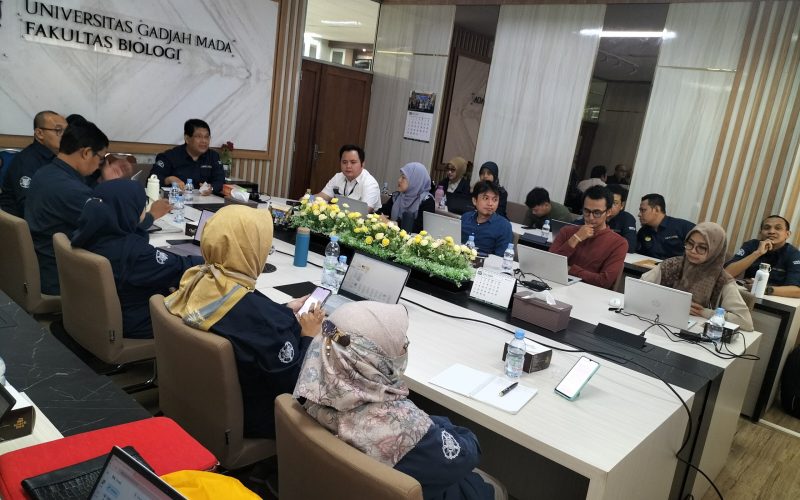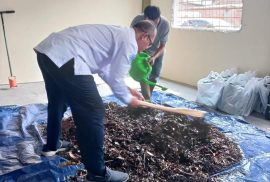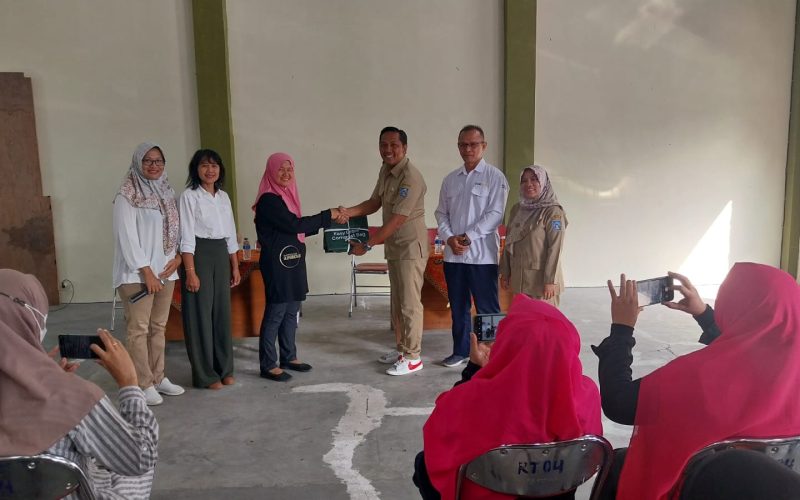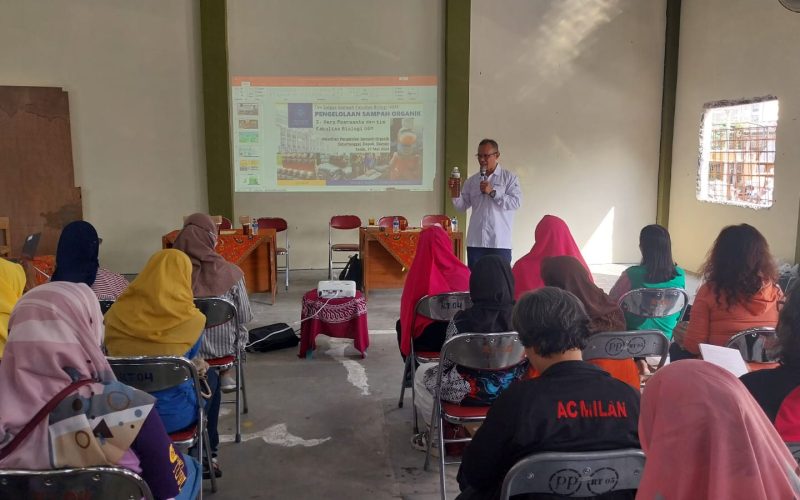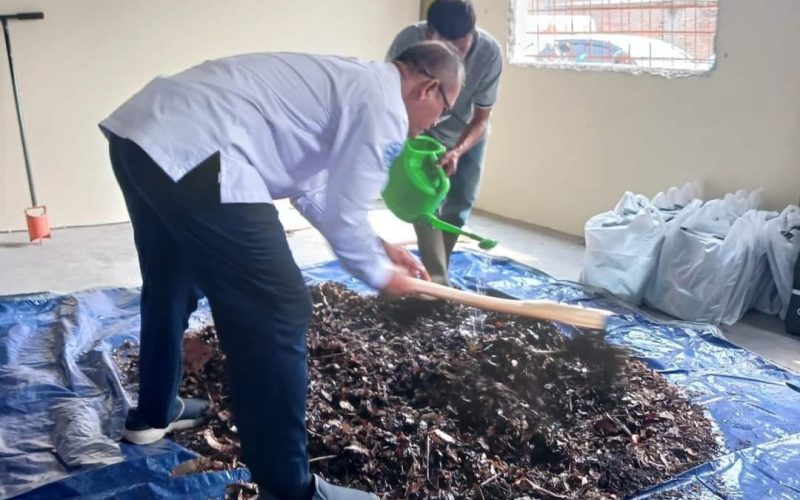SDG 11 : Mobilize Sustainable Cities and Communities
#SDG 1: Poverty; #SDG 11 Inclusive community; #SDG 13: Climate change; #UGM Biology
Yogyakarta, 15th September 2024 – The Community Service Team Program Merdeka Belajar Kampus Merdeka (PkM MBKM) Faculty of Biology UGM held community empowerment activities at Sendari, Cebongan, Tirtoadi, Sleman. This activity was led by three lecturers from Faculty of Biology UGM such as Novita Yustinadiar, M.Sc., Woro Anindito Sri Tanjung, Ph.D., and Wahyu Aristyaning Putri, Ph.D., and also supported by 13 students. The program, titled, One Health : Introduction to Biopory Absorption Holes, is implemented with the aim to increase environmental awareness and encourage people to actively participate in preserving nature through simple solutions and big impacts.
The activity, which took place at the house of the Head of RT 03 Sendari, started at 14.00 until 16.00 WIB. This socialization focused on introducing the One Health Concept through the use of biopory absorption holes. Biopory plays an important role by helping to reduce waterlogging, improving soil quality and supporting ecosystem balance. Participants, which are members of PKK, are expected to understand the importance of biopory absorption holes as an environmentally friendly solution which is applicable in daily life.
The event began with remarks from Mrs. Priwanti as Head of Dukuh, followed by the socialization material from Wahyu Aristyaning Putri, S.Si., M.Sc., Ph.D., who explained the definition of biopory, the maintenance and the function for the environment. Mrs. Putri also shared her experience in using biopory at home and how the great benefits obtained. She emphasized that biopores are not only more efficient as water absorption but also increase soil fertility and prevent flooding in urban and rural areas. Continue with the presentation by the students of the material by highlighting the background information of the idea, working principles, how to make biopsy absorption holes, the ideal location for placing the biopores and various types of biopores that are applicable at home.
As part of the activity, participants were invited to directly demonstrate in the making of biopory absorption holes. They were divided into three groups where each group was given the tas of making one to two biopore holes around their house. After the demonstration was finished, the PkM-MBKM team gave assessments and awards to the group that showed the best result. Thus, the team also explained how to maintain the biopore so that the biopore will last in long term. Participants also were given guidance on materials that could be inserted into the hole, such as organic waste, which helps to catalyze the decomposition process and maintain the balance of the soil ecosystem.
The program to introduce biopore infiltration has strong relevance to several points in the Sustainable Development Goals (SDGs). First, the biopory itself, helps achieve SDG number 6 which is Clean Water and Adequate Sanitation, by increasing water absorption into the soil and maintaining groundwater quality. Second, biopory supports SDG number 11, which is Sustainable Cities and Settlements, through green infrastructure that reduce the risk of flooding/ Third, biopory contributes to SDG number 13, which is Addressing Climate Change, by help to mitigate the impacts of climate change through better water and land management. Fourth, biopory support SDG number 15 which is Life on Land through increasing soil fertility and conserving soil biodiversity. Last, the application of biopory also relevant to SDG number 3 which is Healthy Lives and Well-being, since it helps to reduce the risk of standing water which may trigger disease.
All in all, the event closed with the distribution of door prizes and prizes for the winner of the Biopory competition. We al hoped that this activity will increase the community’s understanding of the importance of protecting the environment, as well as a real step at Sendari for a healthier and free of puddles of water. With One Health spirit, this program hopes that changes in people’s lifestyles as a positive impact, not only for people’s health but also the surrounding environment.

